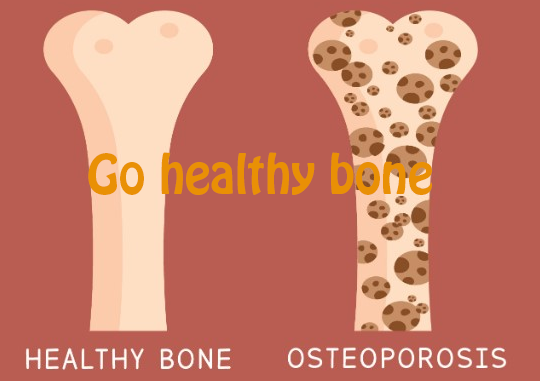If you find yourself tossing and turning at night, desperately seeking a solution for a restful night's sleep, you're not alone. Sleep issues affect millions of people worldwide, impacting not only their energy levels but also their overall well-being. In the quest for a good night's sleep, many are turning to natural sleep aid vitamins as a safe and effective alternative to pharmaceutical options.
Introduction
In a society filled with stress and numerous distractions, attaining a restful night's sleep can pose a considerable challenge. The market for sleep aid solutions has expanded, with an increasing number of individuals seeking natural alternatives. But what exactly are these natural sleep aid vitamins, and how do they contribute to a better night's sleep?
Understanding Sleep Disorders
Before delving into the world of natural sleep aids, it's essential to understand the various sleep disorders that plague so many. From insomnia to sleep apnea, these conditions not only affect the quantity of sleep but also the quality, leading to a host of health issues.
The Rise of Natural Sleep Aid Vitamins
As awareness grows about the potential drawbacks of synthetic sleep aids, more people are turning to natural alternatives. The appeal lies in the fact that these vitamins not only address sleep issues but also contribute to overall health and well-being.
Essential Sleep Aid Vitamins
> Vitamin D and its Role in Sleep Regulation
Recent studies have highlighted the link between Vitamin D deficiency and sleep disturbances. Ensuring adequate levels of this vitamin can positively impact sleep patterns, making it a crucial component of any sleep aid regimen.
> The Soothing Influence of Vitamin B Complex
Known for their role in stress reduction, B vitamins play a vital role in promoting relaxation. Incorporating a Vitamin B complex into your daily routine can contribute to a more serene and peaceful night's sleep.
> Magnesium and its Impact on Relaxation
Magnesium, often referred to as nature's tranquilizer, has been shown to have a calming effect on the nervous system. Including magnesium-rich foods or supplements in your diet may significantlyimprove sleep quality.
Herbal Remedies for Sleep
> Valerian Root and its Sedative Properties
For centuries, people have turned to valerian root as a natural solution for sleep-related issues. Its sedative properties can help induce a sense of calmness, making it easier to drift off to sleep.
> Chamomile as a Natural Relaxant
A warm cup of chamomile tea before bedtime is a popular and effective way to unwind. Chamomile contains compounds that act as natural relaxants, promoting a sense of tranquility.
> Passionflower and its Role in Reducing Anxiety
Passionflower is known for its ability to reduce anxiety and calm the mind. Including this herb in your sleep aid routine may help alleviate the mental stress that often contributes to sleep difficulties.
The Science Behind Melatonin
Melatonin, a hormone generated by the pineal gland, plays a vital role in the regulation of sleep-wake cycles. While our bodies naturally produce melatonin, supplements can be used to address disruptions in the sleep cycle.
Dosage and Timing
To maximize the effectiveness of sleep aid vitamins, it's important to understand the optimal dosage and timing. Consulting with healthcare professionals can help tailor a regimen that suits individual needs and addresses specific sleep issues.
Safety Considerations
While natural sleep aid vitamins are generally safe, it's essential to be mindful of potential side effects, especially with excessive intake. Consulting with healthcare professionals ensures that any supplement regimen aligns with individual health conditions and needs.
Lifestyle Changes for Better Sleep
In addition to incorporating sleep aid vitamins, adopting certain lifestyle changes can further enhance sleep quality. Establishing a consistent sleep schedule and creating a sleep-friendly environment are key components of a holistic approach to better sleep.
User Testimonials
Real-life experiences often speak louder than scientific studies. Many individuals have shared their success stories after incorporating natural sleep aid vitamins into their daily routines. These testimonials shed light on the transformative power of these supplements.
Comparing Natural Sleep Aids to Pharmaceutical Options
While pharmaceutical sleep aids may offer quick solutions, they often come with potential drawbacks. Natural sleep aids, on the other hand, provide a gentler and more sustainable approach to addressing sleep issues.
Combining Vitamins for Enhanced Results
Understanding the synergistic effects of certain vitamins allows for the creation of a personalized sleep regimen. Combining specific vitamins can amplify their individual benefits, leading to a more comprehensive approach to sleep improvement.
The Link Between Nutrition and Sleep
It's not just about supplements; what you eat can also impact your sleep. Incorporating foods rich in sleep-promoting nutrients into your diet can complement the effects of sleep aid vitamins.
Addressing Common Misconceptions
As the popularity of natural sleep aid vitamins grows, so do misconceptions about their effectiveness. Debunking myths and clarifying misunderstandings is crucial for individuals seeking reliable solutions for their sleep issues.
Conclusion
In the quest for a good night's sleep, natural sleep aid vitamins emerge as promising allies. Addressing the root causes of sleep issues, these vitamins offer a holistic approach that goes beyond temporary relief. By understanding the science behind these supplements and making informed choices, individuals can pave the way for restful and rejuvenating sleep.




%20(2).webp)









